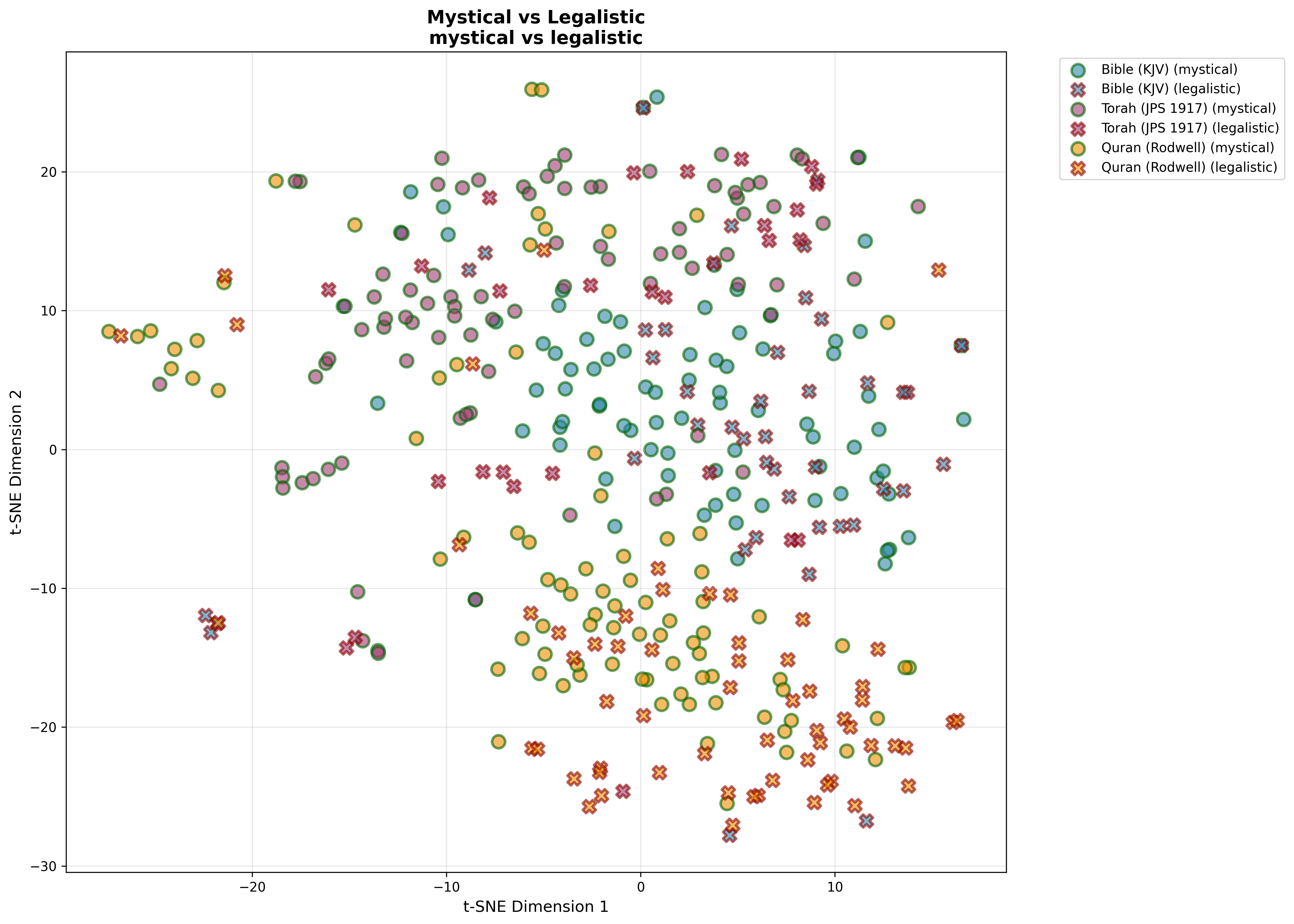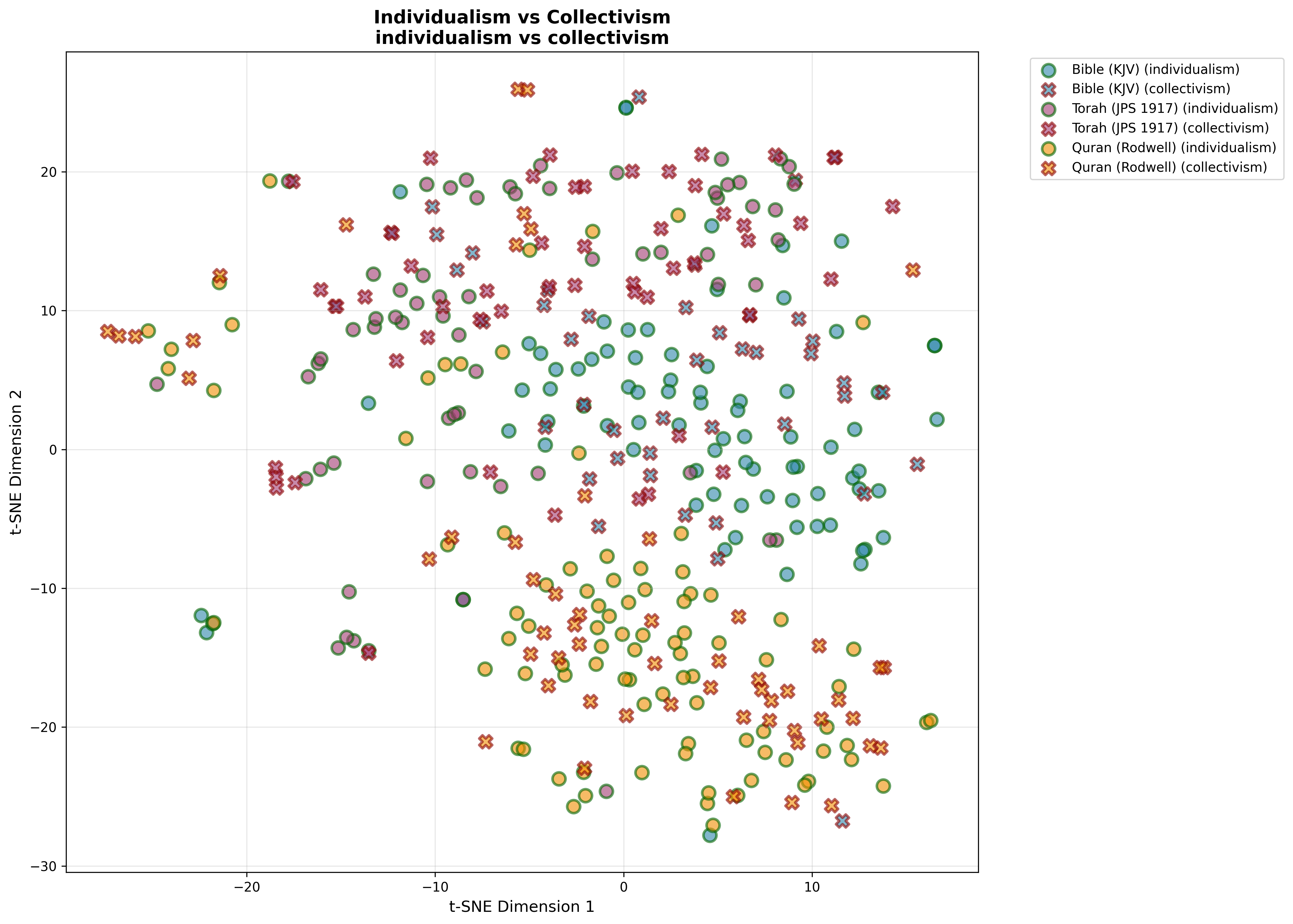christianity and islam both claim divine revelation, fixed texts, and absolute truth. yet one gave birth to secular liberal democracy, the other to theocratic states that fuse religion and politics. why?
the texts
the bible is two books: the old testament, heavy with mosaic law and theocratic rule, and the new testament, which pivots hard. jesus says "render unto caesar what is caesar's"—a wedge between sacred and secular authority. paul writes letters, not laws.
the gospels were written decades after jesus died, compiled and debated by councils. the source languages—hebrew, aramaic, greek—are dead or scholarly, so every generation translates, interprets, debates. canonization embedded interpretation as a cultural habit.
the quran is different. muslims hold it as the literal, unaltered word of god, revealed in arabic to muhammad over 23 years. the text isn't just scripture; it's law, politics, and social order in one.
muhammad wasn't just a prophet—he was a statesman, commander, judge. within his lifetime, islam unified fractured arab tribes. within decades of his death, caliphs expanded across arabia, the levant, persia, egypt. creed and rule were fused from the start.
because arabic is a living language, the text feels immediate to native speakers. interpretation exists, but loose readings risk blasphemy. the structure fosters literalism and unity, not pluralism and debate.
christianity's collapse
did christianity naturally lead to liberalism? no. for most of its history, christianity produced empires just as fused as any caliphate. the holy roman empire, byzantine empire, spanish inquisition—all blended throne and altar.
liberalism didn't emerge from christianity; it emerged despite it, from christianity's collapse.
the reformation shattered religious unity. protestant vs catholic wars exhausted europe into tolerating pluralism as a practical necessity.
the enlightenment—driven by deists, skeptics, and secular philosophers—argued against church authority and for individual conscience. locke, hobbes, spinoza: they built liberalism by carving out secular space that christianity had never granted.
the greek philosophical inheritance—aristotle's logic, stoic ethics—sat beneath christianity the whole time, waiting to resurface. translation, debate, and fragmentation created the conditions for liberalism, but it was a slow, bloody accident, not a feature.
islam's continuity
islam didn't fracture the same way. there was no reformation that splintered authority into competing sects forced to coexist.
sunni and shia split early, but within each branch, the structure stayed unified: caliphates, sultans, empires where faith and rule remained fused. the ottoman empire lasted until 1922.
there was no enlightenment that secularized philosophy or politics. islamic golden age thinkers—averroes, avicenna—engaged with greek philosophy, but their work was suppressed or marginalized within the islamic world, while it fueled the european renaissance.
the result
christianity broke, and in breaking, accidentally made space for secular governance. islam stayed unified, and in staying unified, kept faith and politics intertwined.
both texts are rigid. both can be read as incompatible with modern liberalism. but one produced a culture that learned to work around its text, and the other produced a culture that works within it.
the data
i ran a semantic analysis comparing the bible, torah, and quran. four patterns directly explain the divergent political outcomes:
mystical vs legalistic: the quran is most legalistic (41.8% legalistic chunks), the bible most mystical (66.4%). mysticism creates interpretive flexibility. legalism creates rigid application. christianity's mystical bent allowed it to evolve around its text. islam's legal clarity kept it bound to the text. love vs fear: the quran is the only fear-dominant text (64.4% fear vs 35.6% love). the bible leans love (58.4%). fear-based authority maintains orthodoxy and unity. love-based theology tolerates diversity and fracture.
love vs fear: the quran is the only fear-dominant text (64.4% fear vs 35.6% love). the bible leans love (58.4%). fear-based authority maintains orthodoxy and unity. love-based theology tolerates diversity and fracture.
 war vs peace: the quran emphasizes peace most (74%), but it's a unity-through-order peace. the bible is perfectly balanced (50/50), showing the internal tension that eventually shattered european christendom. that fracture was the accident that created space for liberalism.
war vs peace: the quran emphasizes peace most (74%), but it's a unity-through-order peace. the bible is perfectly balanced (50/50), showing the internal tension that eventually shattered european christendom. that fracture was the accident that created space for liberalism.
 individualism: the bible scores highest on individual conscience (64.8%), the quran lowest (61.6%). texts emphasizing personal relationship with god over communal obligation produced cultures that could eventually secularize the individual-state relationship.
individualism: the bible scores highest on individual conscience (64.8%), the quran lowest (61.6%). texts emphasizing personal relationship with god over communal obligation produced cultures that could eventually secularize the individual-state relationship.

these aren't subjective readings—they're measurable patterns in the text itself. the quran's linguistic structure (legalistic + fear-based + unified + moderately collective) maps directly onto theocratic continuity. the bible's structure (mystical + love-based + internally contradictory + individualistic) maps onto the fragmentation that accidentally enabled secular governance.